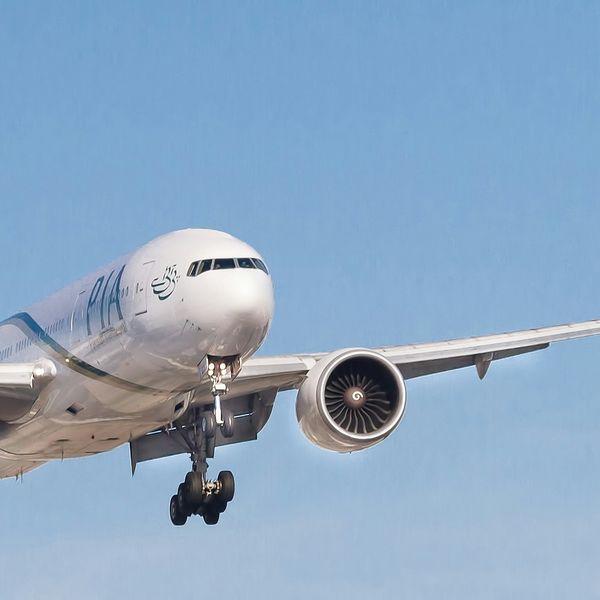Pakistan faces risk in EU market due to stagnant exports
Compliance with new criteria must to maintain GSP Plus status beyond 2027
Business Desk
The Business Desk tracks economic trends, market movements, and business developments, offering analysis of both local and global financial news.

The Pakistan Business Council (PBC) has identified a significant risk for Pakistan as a substantial portion of its key exports to the European Union (EU) fall within the "retreat" category.
Both Pakistan's exports to the EU and the EU's imports from the world in these product lines are relatively low, indicating limited growth potential.
“If Pakistan continues to focus on these stagnant product lines, it may face severe challenges in the coming years, with exports to the EU potentially declining significantly over time,” PBC noted in a report titled Risks to Pakistan’s Market Access to EU.
In 2023, the EU's highest import from Pakistan was men's or boys' cotton trousers and related clothing, valued at €722.9 million ($818 million). However, this category saw a 2.7% negative compound annual growth rate (CAGR) between 2019 and 2023.
The EU's GSP Plus scheme, extended to 2027, is undergoing renewal discussions for 2024-2034, with new requirements for beneficiary countries, including ratifying five additional conventions on environmental and labor issues.
The proposal strengthens conditionality, adds new conventions, and adjusts withdrawal procedures. Pakistan must comply with these new criteria, once announced, to maintain its GSP Plus status beyond 2027.
EU's GSP Plus scheme provides zero-rated tariffs, boosting Pakistan's competitiveness, especially in textiles, allowing it to compete effectively with countries like China and India.
Pakistan has benefited from the EU's GSP Plus scheme for the past decade, but its future qualification is uncertain due to stricter criteria and additional conditions in the upcoming program.
If Pakistan fails to qualify, it could revert to the EU's standard GSP, offering fewer trade privileges. Although Pakistan may still be eligible for the standard GSP, the loss of GSP Plus status would result in reduced market access and higher tariffs.
PBC Recommendations
PBC suggests that Pakistan should retain its GSP Plus status, negotiate new preferential arrangements with the EU, and align its export efforts to target European high-demand products to safeguard its market position and protect its substantial market share.
Without these efforts, Pakistan risks losing its competitive edge, impacting its export growth to the EU.
To maximize benefits under the EU GSP Plus scheme and mitigate against its possible withdrawal, Pakistan needs to diversify its export portfolio beyond textiles and leather goods.
Sectors like organic chemicals, pharmaceuticals, and machinery hold untapped potential. Expanding into these categories can reduce over-reliance on a narrow range of products and utilize current scheme tariff concessions better.
Investments in emerging products like knitted apparel and sportswear, which show positive growth trends, can enhance Pakistan's competitive edge.
Exporters should be incentivized to diversify into high-growth products with government support, such as innovation subsidies, access to finance, and skill development programs.
Engaging with international buyers to align product development with market trends can further enhance competitiveness and strengthen Pakistan's export portfolio.
Encouraging eco-friendly production processes and obtaining certifications for sustainable goods will align Pakistani exports with EU consumer preferences and regulatory standards. This strategy ensures compliance and strengthens Pakistan's position in the market for environmentally conscious products.
Expanding into untapped EU markets in Central and Eastern Europe can unlock new growth opportunities. Tailored marketing campaigns, trade missions, and logistics support are necessary to penetrate these markets.
Improving trade infrastructure, like upgrading port facilities, transportation networks, and digital customs systems, will reduce export lead times and enhance competitiveness.
Trade policy development must involve collaboration between government bodies, exporters, and EU stakeholders. Regular consultation will ensure policies are relevant and responsive to market trends. Periodic reviews of export performance and adjustments based on emerging opportunities will optimize trade strategies.
A flexible, data-driven approach is crucial for sustaining Pakistan's competitiveness under the GSP Plus scheme, according to the PBC.







Comments
See what people are discussing